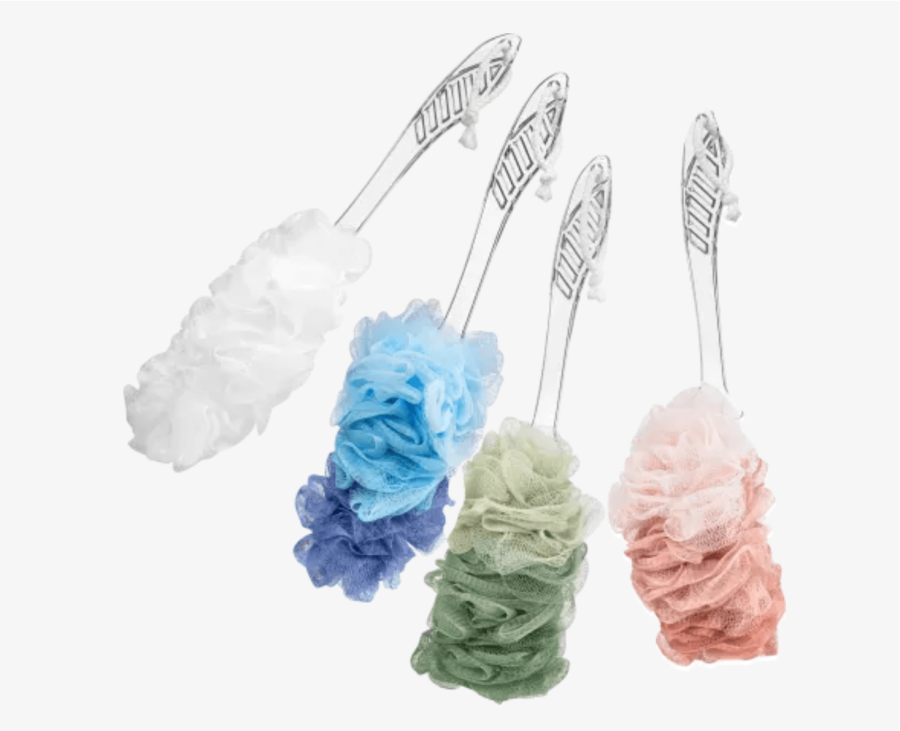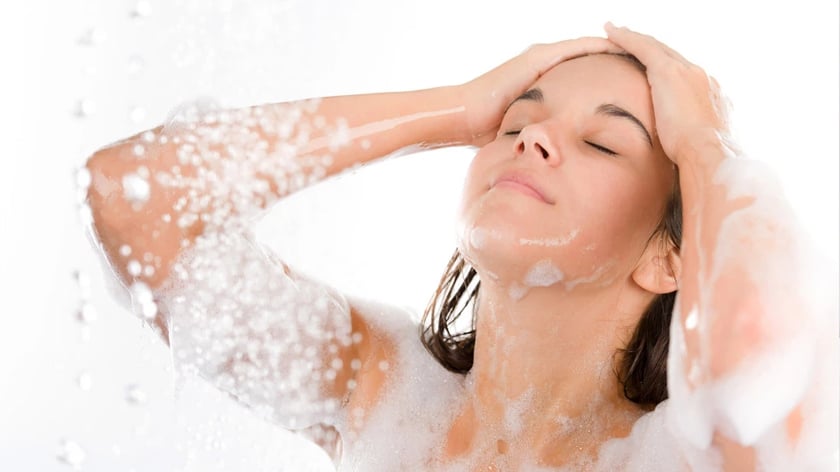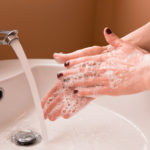There are various types of bath sponges available in the market, including sponges made from natural fibers like dried gourd, mesh bath sponges, and silicone sponges. These sponges are designed to exfoliate dead skin cells. However, using a bath sponge requires some care to avoid irritation, damage, and breakouts.

Be cautious of rough sponges that can compromise the skin barrier
Rough sponges may give you a feeling of more effective exfoliation. However, if they are too rough, they can cause small scratches on the skin and strip away too many cells, affecting the natural protective barrier of the skin and making it thinner and more prone to dryness.
Regular use of these bath sponges can weaken and sensitize your skin as the natural barrier will not have a chance to recover. Additionally, leaving bath sponges unused for a long time can make them harder, such as dried gourd sponges becoming harder due to prolonged drying, or plastic mesh sponges becoming stiff due to plastic degradation.
Bacterial contamination of sponges can cause breakouts
Bath sponges that are frequently exposed to moisture can harbor fungi, bacteria, and other pathogens. Moreover, the bathroom environment is a place with a high concentration of disease-causing microbes. Since bath sponges remove dead skin cells, they can trap these cells, leading to bacterial and fungal contamination. Reusing contaminated bath sponges can increase the likelihood of breakouts.

Tips for using bath sponges safely:
– Choose soft sponges, and discard them when they become rough. Generally, you should replace mesh bath sponges every three months, while dried gourd sponges should be replaced earlier as they tend to soften faster.
– After each use, rinse and dry the sponge to prevent bacterial growth.
– If the bath sponge becomes sticky or slimy, soak it in vinegar or soap and dry it thoroughly.

– Avoid using bath sponges to exfoliate the face.
Additionally, when taking a bath, pay attention to the water temperature. Excessive hot water can dry out the skin and cause it to peel by removing the natural oils that protect the skin, leaving it defenseless. This can also increase blood flow, leading to redness, inflammation, and rashes. The ideal bath water temperature is around 35-40°C for healthy skin.






































